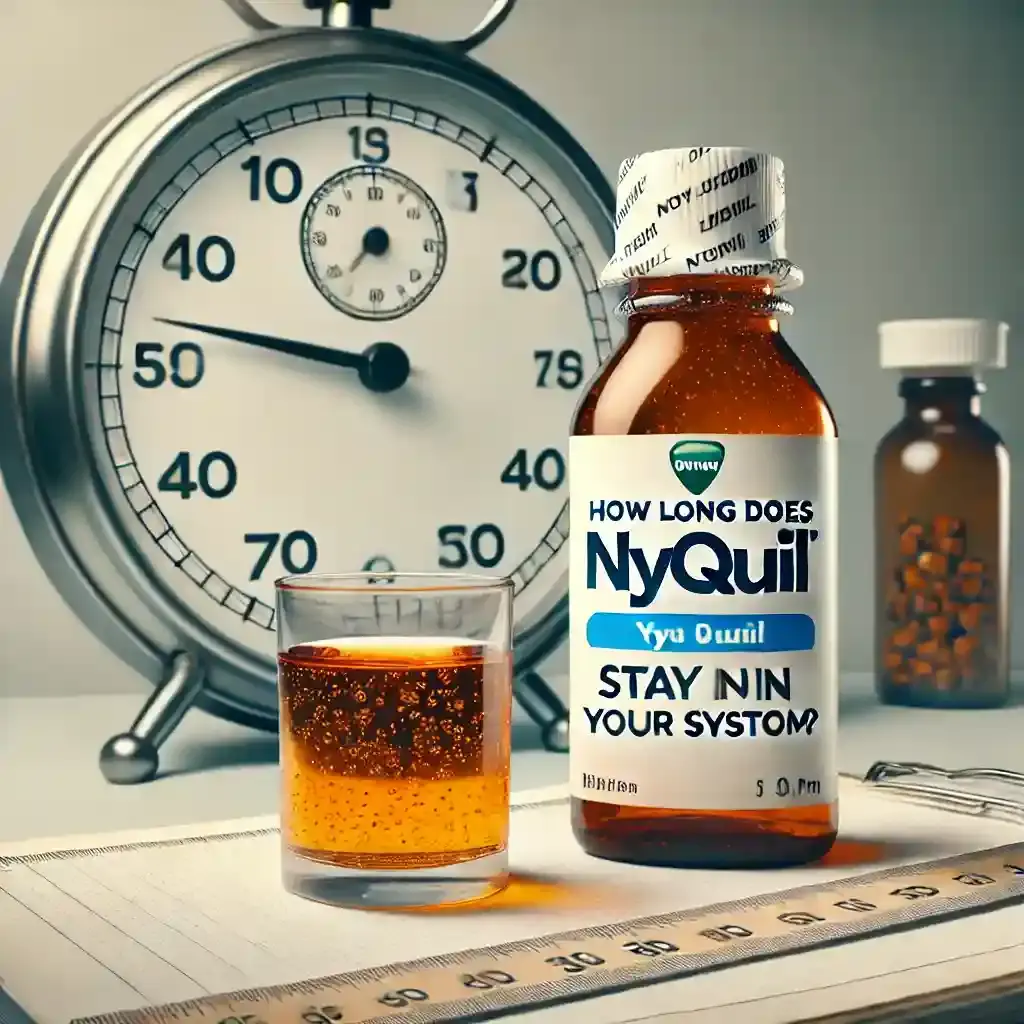Are you tired of constant sneezing? Whether it is due to cold, allergies, or weather changes, a runny nose and continuous sneezing can make you tired or slow you down. But do not worry, as there are simple home remedies that you can try at home. So, "how to stop a runny nose." Explore the blog for effective tips!
10 Best Home Remedies for a Runny Nose and Sneezing
Here are the most effective remedies to get rid of a runny nose and sneezing:
1. Use a Saline Nasal Spray or Rinse
One of the best home remedies for allergies, as it helps relieve allergy-related nasal symptoms, like a runny nose and sneezing.
Helps thin mucus and flushes out allergens, which can help manage a runny nose.
Also, it moistens the nasal passage, which prevents irritation, a contributing factor to a runny nose and sneezing.
How to use:
Just mix 1 teaspoon salt and 1/4 teaspoon baking soda with some warm water.
Then, pass out the solution through the nostrils by tilting your head.
2. Take a Facial Steam
Loosens and thins the mucus, making it much easier to flush it out from the nasal passage.
Moreover, the warm and moist air from the steam soothes the nasal passages, relieving inflammation and reducing sneezing.
How to do:
Heat the water just enough that it can create steam. Don't boil it. Add about 2 drops of decongestant (relieves nasal congestion) essential oils to water if desired.
Place your face 8-12 inches above the steam for 5 minutes at a time. Avoid close contact with the water.
Close your eyes and inhale through your nose.
Then, blow your nose to remove mucus.
Repeat this 2-3 times per day until you have symptoms.
3. Use a Warm Compress
Helps loosen the mucus and decrease sinus pressure, which relieves a runny nose and thus sneezing.
In addition, warmth from a compress encourages blood circulation, aiding in thinning and drawing out mucus.
How to use:
Just apply a heating pad to your nose and gently press it down.
Moreover, take a thick towel, dip it in hot water, and then pat it on your nose.
4. Try Hot Herbal Teas
The anti-inflammatory and decongestant properties of herbs such as peppermint and ginger can help relieve inflammation in the nasal passage, which opens blocked airways and prevents congestion.
On the other hand, antihistamine effects of herbs like chamomile can stop the production of histamine, which is responsible for triggering a runny nose and sneezing.
How to use:
Make a hot herbal tea by boiling herbs in water.
Inhale the steam of it before sipping it.
5. Rinse Using a Neti Pot
Assist with loosening and flushing out of mucus and other debris that irritate the nasal passages.
This, in turn, relieves inflammation in the nasal passage, which leads to sneezing and a runny nose.
Research has shown that Neti Pot was more effective in relieving a runny nose compared to a nasal spray.
How to use:
Tilt your head, insert the spout of your neti pot into one of the nostrils, and pour the saline solution, which will flow through the nasal cavity and out from the nostrils.
Repeat this on another nostril.
6. Use a Humidifier
Add moisture to the air, which loosens and thins mucus, draining and clearing it from the nasal passage.
In addition, it increases humidity, which helps soothe nasal passages, lowering the frequency of sneezing.
How to use:
Use distilled or demineralized water in a humidifier to alleviate the risk of mineral buildup and ensure clean water vapor.
Maintain the humidity level between 30 and 50 percent.
Clean it regularly to prevent the growth of bacteria and mold.
7. Over-the-Counter Medications
Antihistamines:
Loratadine, cetirizine, and diphenhydramine are the best antihistamines for allergies.
Blocks histamine, which quickly stops a runny nose and sneezing related to allergies.
Decongestants:
Examples are pseudoephedrine and phenylephrine.
Relieves nasal congestion and swelling
Use for only 3 to 5 days to prevent rebound nasal congestion.
Note: Always follow directions mentioned on the label or seek medical guidance, especially for kids and pregnant women.
8. Drink a Lot of Fluids
Drink a lot of water or other fluids to keep yourself hydrated, as it thins out mucus, easing its passage. This results in faster drainage of mucus from the sinuses and the nose.
Moreover, it keeps the mucous membranes moist, which prevents irritation in them, which can contribute to a runny nose.
However, make sure to avoid excessive caffeine intake, as it can lead to dehydration.
9. Eat Spicy Foods
A study reports that the chemicals, like capsaicin in spicy foods, such as chill peppers, can manage non-allergic rhinitis, which leads to a runny nose.
In addition, the anti-inflammatory properties of capsaicin can decrease inflammation in the nasal passages, which can contribute to a runny nose and congestion.
10. Have a Turmeric Milk
The antioxidant and anti-inflammatory properties of turmeric milk can calm irritated nasal passages and strengthen the immune system.
Moreover, the curcumin in turmeric can reduce inflammation, which is a contributing factor to a runny nose and sneezing.
How to use:
Mix half a teaspoon of organic turmeric powder in warm water and stir it well.
Drink it one time a day, especially before bed.
Tips for Coping with a Runny Nose or Excessive Sneezing
An irritated nose can be an annoyance not only to you but to anyone sitting next to you. Along with the above-mentioned home remedies, you can also follow these tips to manage your nose and your surroundings:
Lie down in a comfortable position to rest your nose. Most often, this can help relieve your runny nose and sneezes.
Use a handkerchief every time you sneeze.
Use soft tissues to blow your nose. It will prevent nose rashes.
Wash your hands before touching your food and any other object.
Keep yourself busy to avoid getting irritated with an already irritated nose.
When to See a Doctor?
Consult the healthcare providers if:
Symptoms last for over 10 days
You also experience a high fever
Your mucus is green or has a foul odor (may be due to a sinus infection)
Your breathing becomes tough
Professional Treatment for a Runny Nose
Though a runny nose resolves on its own, if it lasts longer, doctors can help with prescription medications or surgery based on the cause. Those include:
Antibiotics: Prescribed if a bacterial infection is the cause.
Oral corticosteroids: Recommended for more severe allergic rhinitis.
Leukotriene Inhibitors: Block leukotrienes, the type of chemicals that cause inflammation associated with an allergic reaction.
Antihistamines: Examples include Benadryl (diphenhydramine) and Zyrtec (cetirizine) to block the production of histamine, if allergy is suspected.
Pain Relievers: Examples are acetaminophen, ibuprofen, or aspirin, which will help relieve fever and headache that accompany a runny nose.
Surgery: If nasal polyps or a deviated septum are the cause, the providers can suggest surgery. For instance, polypectomy for nasal polyps and septoplasty for deviated septum.
Causes of a Runny Nose
The causes can be:
Infections: Viral infection (e.g., influenza and common colds) and bacterial infections (e.g., sinusitis), as they cause excessive mucus production and inflammation.
Allergies: Allergic reactions to dust, mold, pollen, and pet dander can stimulate the immune system to produce excess mucus.
Irritants: Pollution, smoke, and strong odors can cause irritation in the nasal passages, leading to more mucus production.
Weather changes: Dry or cold weather can irritate the nasal lining, causing the nose to release excess mucus.
Other factors: Other less common causes include:
Deviated septum.
Dry air
Nasal polyps
Sinus infection
Nonallergic rhinitis
Sleep apnea
Pregnancy rhinitis
Certain medications, like antidepressants and blood pressure medications
How to Prevent a Runny Nose
Follow these tips to prevent a runny nose:
Find and avoid triggers, like pollen, dust, or pet dander, that contribute to allergic reactions.
Wash your hands frequently to lower the risk of infections.
Avoid close contact with people who are dealing with colds or infections.
Drink a lot of fluids to get rid of toxins and maintain healthy nasal passages.
Consume a balanced diet rich in antioxidants, zinc, and vitamin C to strengthen the immune system.
Exercise regularly, which can also help strengthen the immune system.
Keep your environment clean by frequently disinfecting surfaces such as doors and tables and using air purifiers to cleanse the air.
Wear a dust mask when going or working outdoors if you have allergies.
Summing Up
So, how to stop a runny nose? With some simple home remedies, such as a saline nasal spray or rinse, a warm compress, a net pot, hot herbal teas, facial steam, a humidifier, and so on. However, if these are not effective enough to provide relief, see a doctor who can help with prescription medications or other treatments according to the cause.
वारंवार विचारले
How to instantly stop a runny nose?
Inhaling steam, using a saline nasal spray, applying a warm compress, and staying hydrated can help treat a runny nose instantly.
Can teething cause a runny nose?
No, it doesn't directly cause a runny nose, as a runny nose occurs due to viral infections. However, teething can expose babies to germs as they often put things in their mouths, increasing the risk of catching a cold.
How long does a runny nose usually last?
It lasts for 7-10 days. But in certain cases, it can last for up to 2 weeks. If a runny nose persists for over 3 weeks, see a doctor.
Is it safe to put Vicks in your nose for a runny nose?
No, it's not safe, as Vicks contains camphor that can be toxic when absorbed through mucous membranes. The best advice is to apply it to the throat or chest to clear nasal passages.

लिहिलेले







